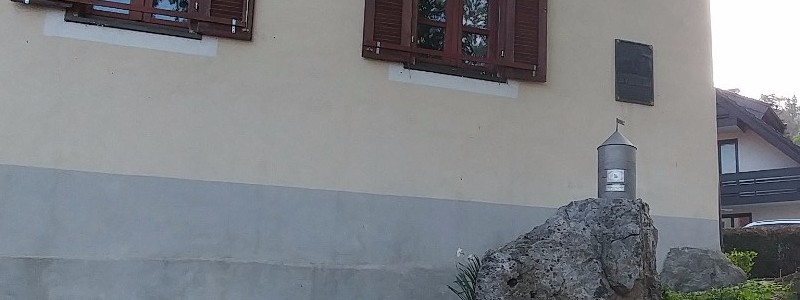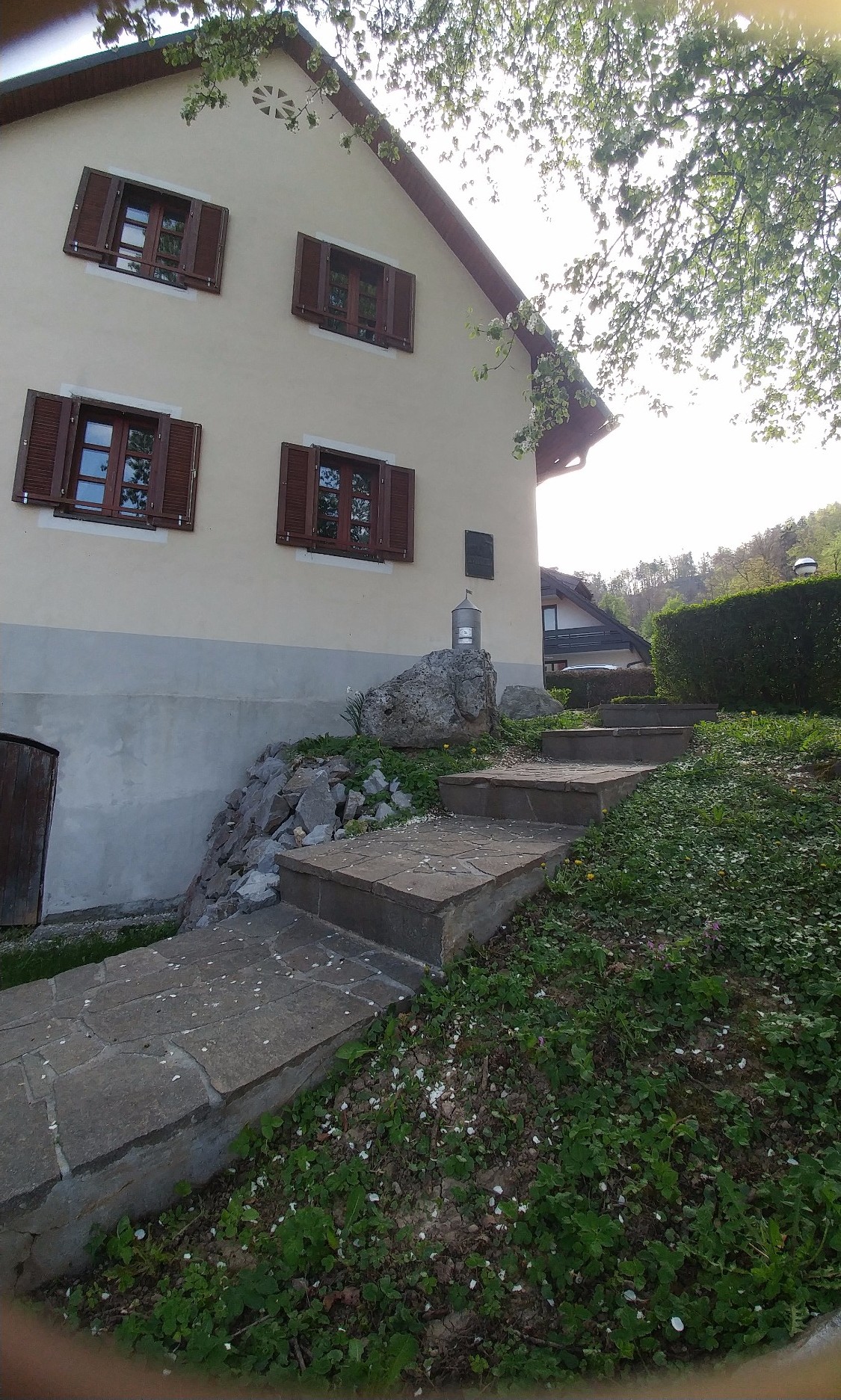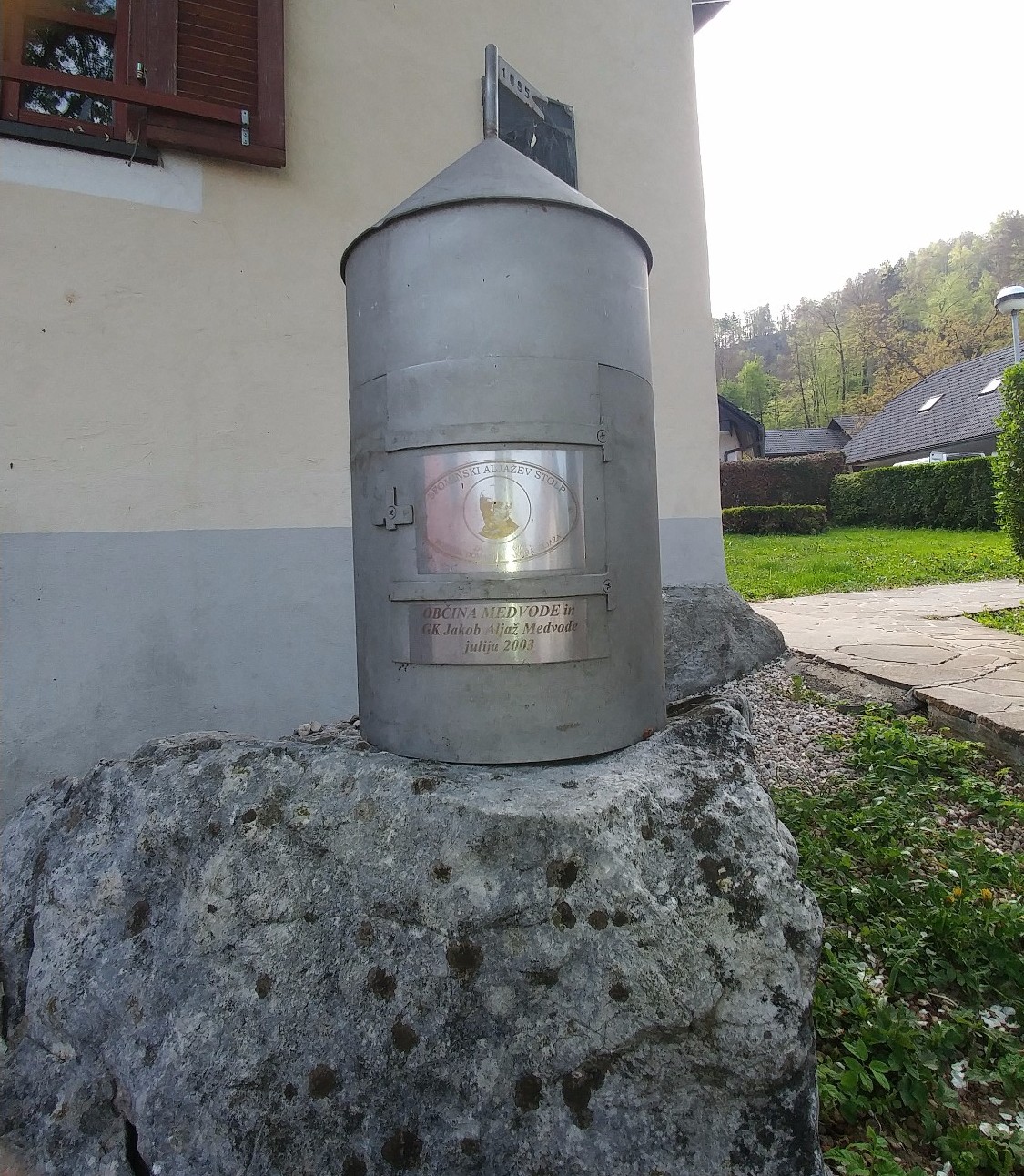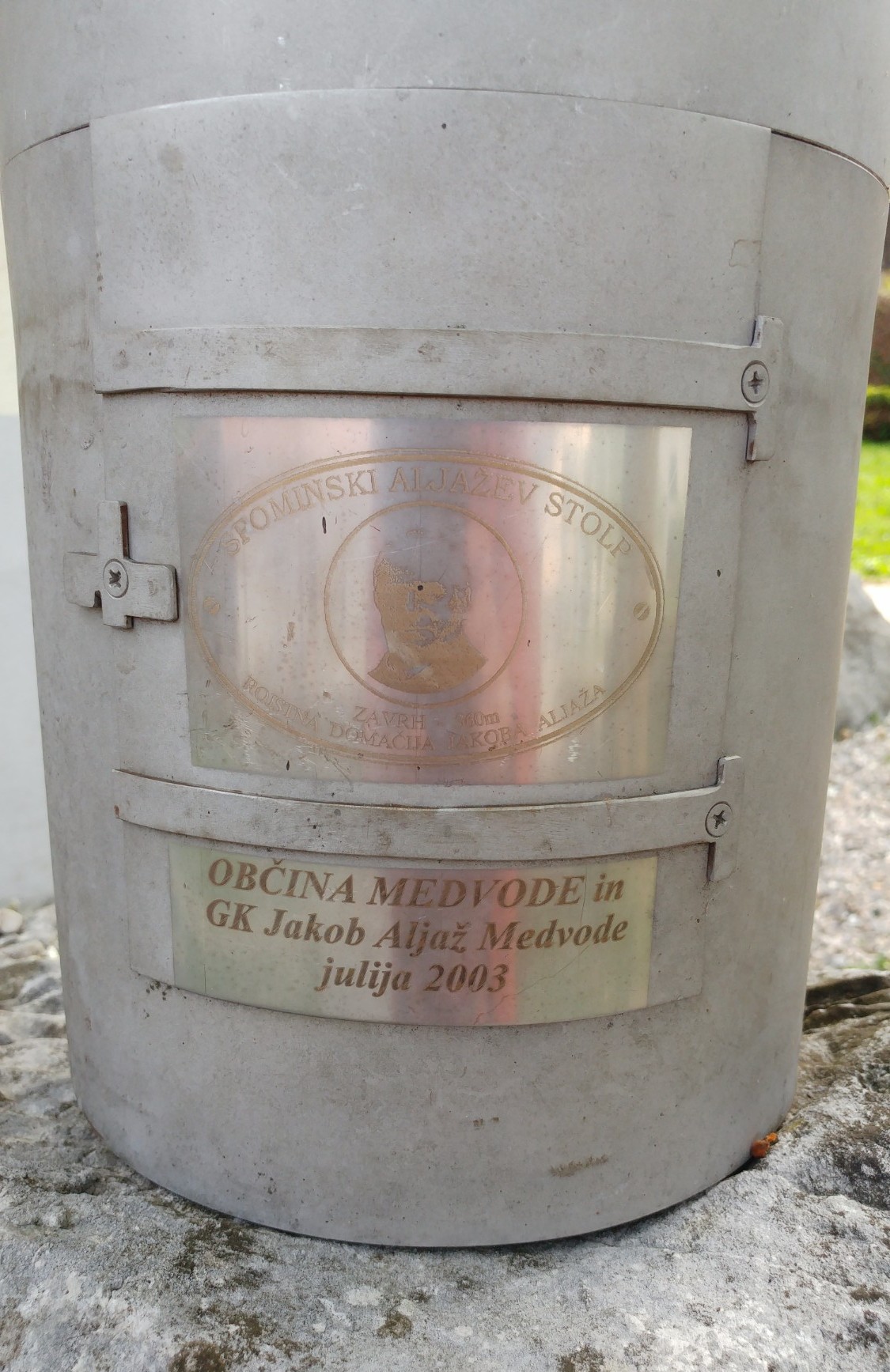The birthplace of Jakob Aljaž was built in the 19th century in Zavrh pod Šmarno goro, and now serves as a memorial to the composer, priest, passionate mountain climber and ardent proponent of national identity. The building houses a small-scale exhibition of the composer’s legacy. Along with his photographs and binoculars, the collection includes an original document from 1909, granting Aljaž honorary membership in the Glasbena matica Music Society, and the Slovenska pesmarica songbook published by Mohorjeva založba in 1896, whose editor was Jakob Aljaž.
Jakob Aljaž
Slovenian composer, choirmaster, singer and priest Jakob Aljaž (1845–1927) dedicated himself to vocal music, finding in the genre the perfect vehicle to sing praises to the beauties of the Slovenian countryside and foster patriotic sentiments. It is thus not surprising that a number of his pieces have attained the status of folk songs.
Aljaž obtained his first music education under Kamilo Mašek, and later honed his compositional skills with tutor Anton Foerster. The distinctive quality that pervades his vocal music is the mellifluousness of its melodic contours, which, according to acknowledged Slovenian musicologist, Dragotin Cvetko, Aljaž infused with folk spirit. Among his most prominent songs are Oj zbogom, ti planinski cvet, Ujetega ptiča tožba (Oh, Farewell, Thou Mountain Blossom, The Plaint of a Caged Bird) and Oj Triglav, moj dom (Oh, Triglav, My Home), which proved particularly significant in building Slovenian national consciousness.
Aljaž’s efforts were instrumental in the emergence of Mount Triglav as one of the central symbols of the Slovenian people. The first verse of the patriotic poem Oj, Triglav, moj dom by Matija Zemljič, which was set to music by Aljaž, is engraved on the 50 cent Euro coin, and has been the anthem of the Alpine Association of Slovenia since 2007.
In 1887, with a view to promoting choral music in Slovenia, Aljaž addressed a proposal to Mohorjeva družba to publish a collection of songs. However, owing to an earthquake (1895), which damaged the building of the Glasbena matica Music Society in Ljubljana, and some other factors that led to, among others, a dispute between Aljaž’s liberal and Catholic fellow countrymen, the songbook was postponed until a later date. In 1896 Aljaž, otherwise an exponent of Caecilian musical principles, succeeded in securing permission to publish his compositions. They were published by Mohorjeva družba, the publishing house of the Glasbena matica, in the first volume of Slovenska pesmarica (A Slovenian Songbook), which also included a selection of best-known choral pieces by Slovenian composers. The publication helped boost the formation of provincial choirs, and paved the way for Slovenian art music to spread more widely among the common people.
Apart from his abiding love of music, Aljaž was also a devoted mountaineer. He is acknowledged for building numerous alpine huts and arranging several hiking trails in the Julian Alps, thus encouraging the development of mountain climbing.
Maia Juvanc



